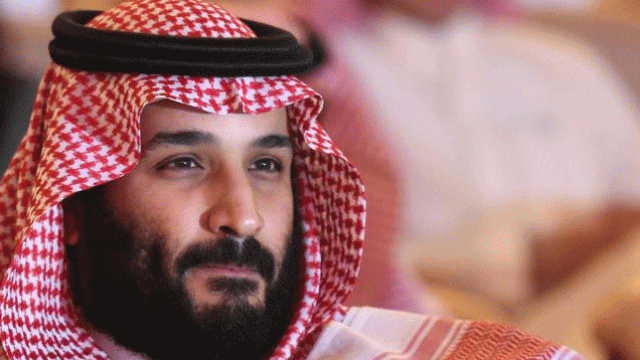
I never thought I would have to live long enough to write this sentence: The place where the most important reform process in the Middle East is now, is Saudi Arabia. Yes, you're just reading the sentence. Although at the beginning of the winter I came here, but I saw the country going through the Arab Spring.
But this Arab spring is not like other Arab spring. All Arab Spring, except Tunisia, has failed. And 32-year-old Prince Mohammad bin Salman is leading this Arab Spring. If this Arab Spring is successful, it will not only change the character of Saudi Arabia, but also will change the nature and style of Islam around the world. But it is also true that only fools can think of the success.
To understand the matter well, I came to Riyadh for interviewing the Saudi Prince, Mohammad bin Salman. But he did not say anything about the incident that took place in early November. Earlier this month, the Saudi government arrested a number of prince and minister on charges of corruption and sent a jail to Riyadh's Ritz Carlton Hotel.
I meet him in the family palace of Prince Salman in Ouza, north of Riyadh. There, besides Prince, his brother Prince Khalid, who was a Saudi ambassador to the United States and a few senior ministers. Yuvraj replied in English. After about four hours of interview, I stayed quiet at 1:15 pm. After a long time, an Arab leader told me about new ideas about the transformation of his country.
We started with a clear question: What is happening at Ritz Hotel? And his power play is to eliminate the opponents of his family and private sector? And his sick father, King Salman, gave the key to the country's power?
Yuvraj said it is ridiculous that this anti-corruption campaign is being held to take power. He mentioned that several prominent members of the Ritz Hotel, who have already been loyal to him and his reforms, have been behind him and most of the "royal family" is behind him. He said, 'Since our country has been suffering from the corruption since 1980 till now many suffer. According to our experts, there are roughly 10 percent corruption in all government expenditure per year. This is the corruption from top to bottom level. Over the years, many governments have fought against corruption. But they all failed. Why? Because they always started from the bottom. '
So when his father ascended the throne in 2015 (when oil prices fell), he pledged to stop corruption. King Salman has served as governor of Riyan for five decades. But no allegation of corruption has ever been made against him.
Yuvraj said, 'My father has seen that there is no way we can stay in G-20 and corruption will remain there. In early 2015 my father instructed his team to collect all the information related to high corruption. This team has worked for two years, until they have got the right information. Then the name of 200 corrupt people came out.
Yuvraj said, when all the information was ready, then the government counsel Saud al-Majib took action. Each trader and prince were arrested and given two options. Show all the documents that we have. 95 percent of them agreed to settle. That means, they will deposit cash or part of the business into the Saudi treasury.
Only 1 percent have proved that they are clear. The case against them was withdrawn immediately. About 4 percent said they did not do any corruption and they would be going to the court through a lawyer. According to Saudi law, the government counsels are independent. We can not interfere in his work. Only the king can dismiss him. But he is running this process and our experts have ensured that no business has been bankrupt to avoid unemployment in this process.
I asked, how much money have they rescued?
Yuvraj said the government prosecutor said it is about $ 10 billion dollars. He also said that there is no way except eradication of all corruption from top to bottom. So we have to give a signal and this signal will continue. We will not move away from this and we already see its effects. People are writing on social media. But the Saudi merchants who have bribed bureaucrats to get the services are not being tried. They are being judged, who have filled the government's money in their pockets through corruption.
One thing I can say, I talked to many Saudi people about this, none of them expressed spontaneous support for this anti-corruption campaign. However, the majority of Saudi Arabia's people are clearly annoyed by the corruption of businessmen and princes. When foreigners like me asked them about the legitimacy of this campaign, their attitude was like this: 'Reverse them completely, take out all the money from their pockets, until all the money comes out, keep them shaking.'
But the anti-corruption campaign is Mohammed bin Salman's second initiative. The first is to make Saudi Arabia a more liberal and modern state, as it was until 1979. Recently, in a global conference, Prince Salman has described Saudi Arabia as a liberal state, which has balanced Islam, which is the whole world, all religions, all the harm